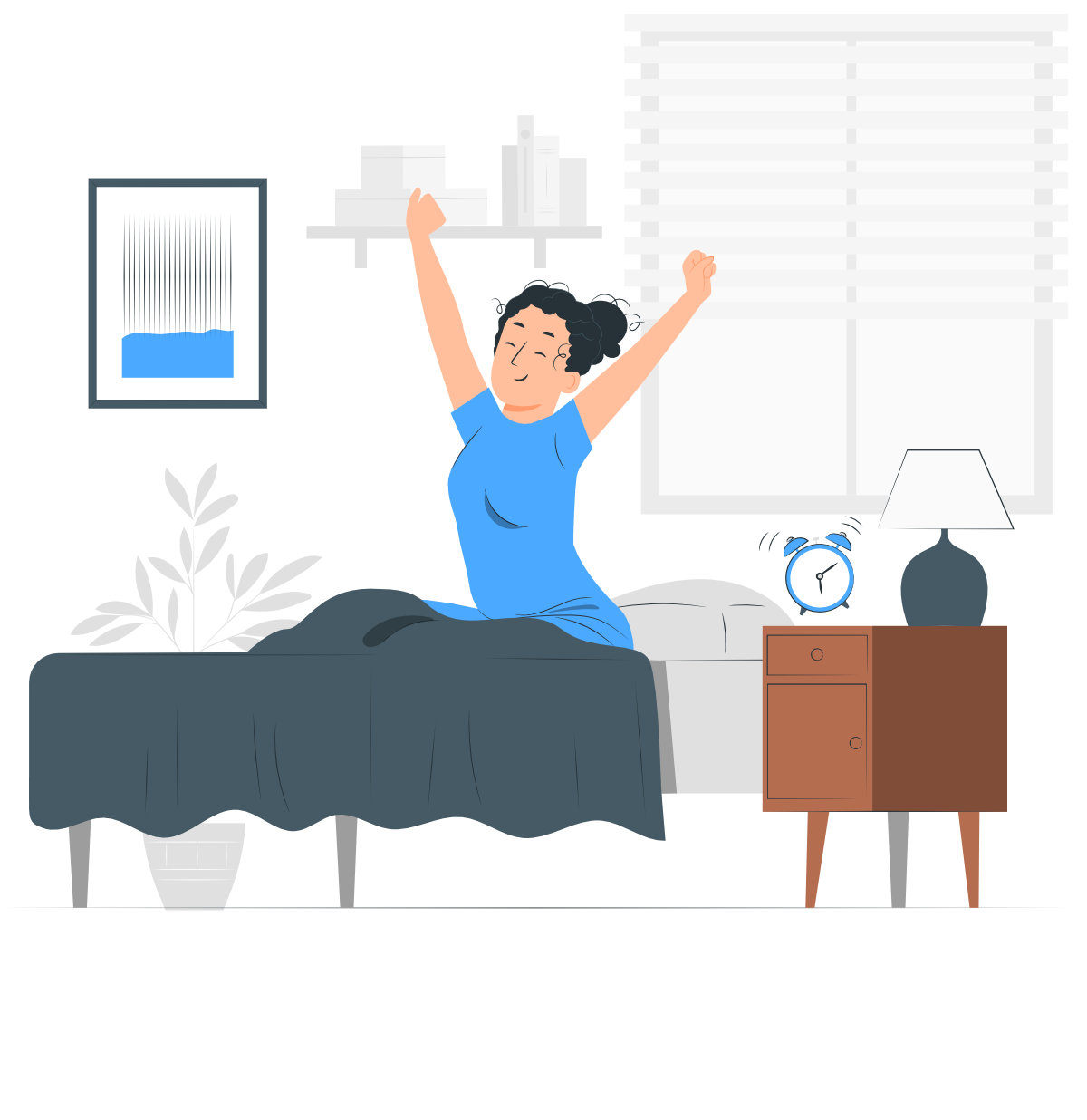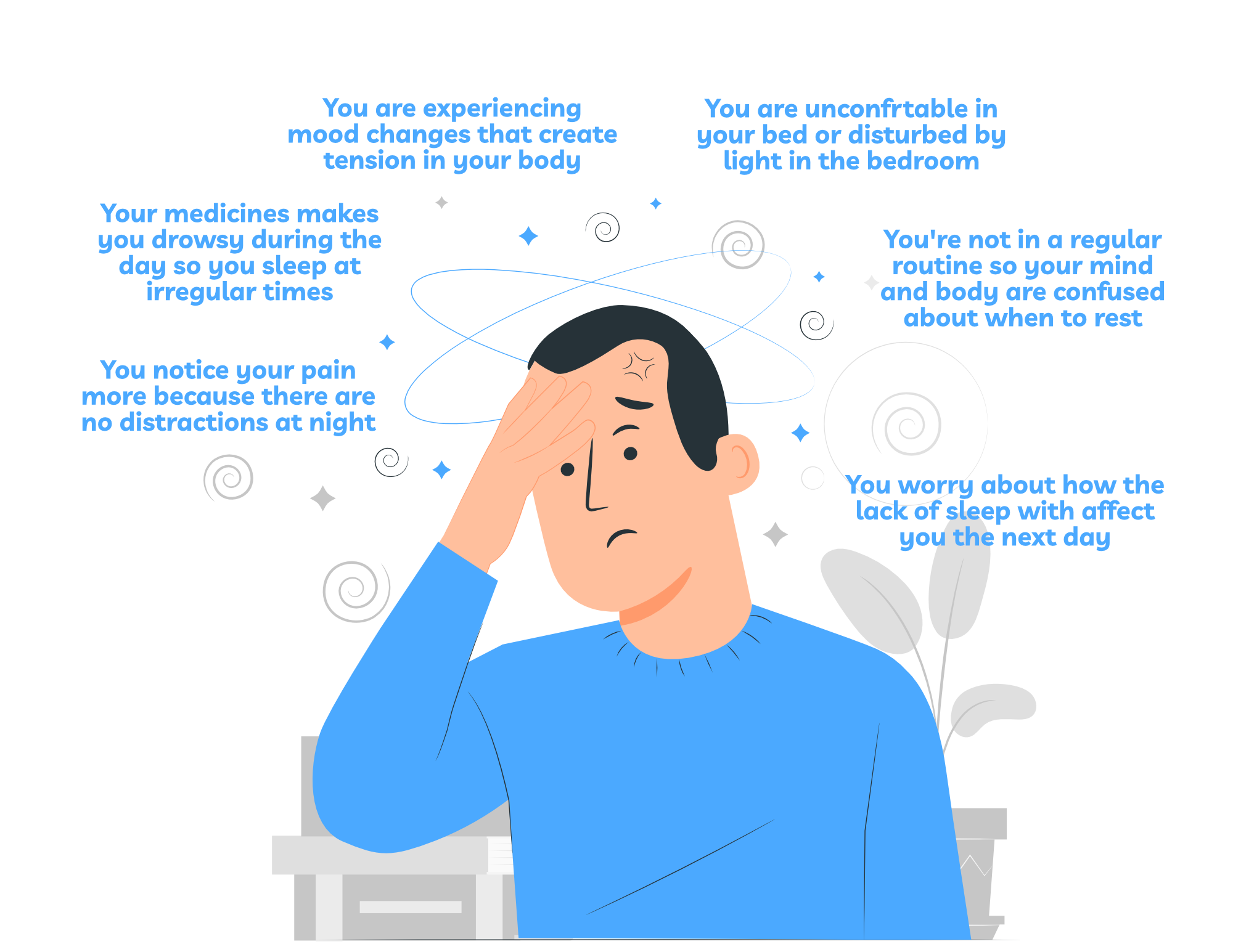Home | Explore our resources | Popular self-management skills | Getting a good night’s sleep
Getting a good night’s sleep
If you’re living with pain and struggling with sleep then you’re not alone. It’s very common for people with persistent pain to have difficulties getting to sleep or staying asleep.
However, recent research shows that by adjusting what you do during the day, as well as night, it is possible to achieve a healthier sleep pattern.

Why can’t I sleep?
Many people find that poor sleep makes their pain seem worse. They get into a vicious cycle where poor sleep worsens pain, and worse pain makes sleeping even more difficult.
It’s likely that there are a number of causes of your sleep difficulties.
The picture shows six triggers often found by people living with pain –

The really good news is that there are lots of changes you can make to help you to sleep well. Over a period of five to six weeks these can make a huge difference.
Five changes you can make for better sleep
1. Your daytime routines
- Get into a regular daytime routine
- Avoid napping during the day
- Avoid using your bedroom to rest in the daytime
2. Your activity levels
- Learn the skill of pacing
- Do physical activities you enjoy
- Try to do some activities outside
3. Your food and drink choices
- Avoid caffeine in the evening
- Try not to drink too much liquid just before you go to bed
- Avoid drinking alcohol late in the evening
- Eat your main meal earlier in the evening
4. Your night-time routines
- Follow a wind-down routine every evening
- Only go to your room when it’s time to sleep
- Get the temperature right
- Make sure your room is dark
5. Helping mind and body to rest
- Make sure you have a good bed
- Find a comfortable position
- Use relaxation techniques
- Avoid checking the time during the night
- If you wake up in the night – don’t struggle
 What is self management?
What is self management? Using our resources
Using our resources About us
About us Always trusted, always free
Always trusted, always free Explore our resources
Explore our resources Ten Footsteps programme
Ten Footsteps programme Professional tools
Professional tools Training for practitioners
Training for practitioners Our newsletter
Our newsletter Inspire – our blog
Inspire – our blog